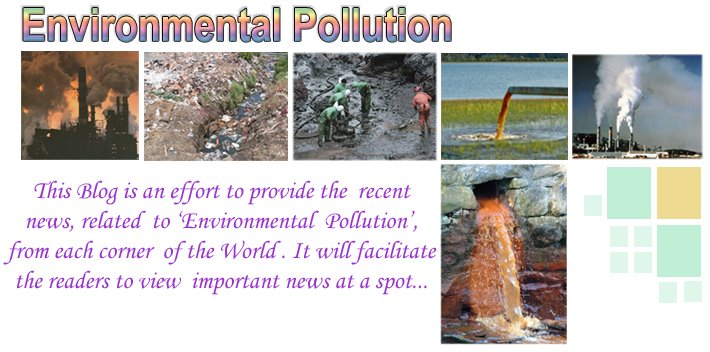Adianto P. Simamora, The Jakarta Post, Jakarta
Some 300 high-rise buildings across the country still use chlorofluorocarbons (CFCs) in their air-conditioning systems, despite a 2007 ban by the government on imports of the ozone-depleting substances. The National Commission for Ozone Protection revealed Tuesday that most five-star hotels, office buildings and textile companies ran centrifugal chillers using CFCs.
"We found at least five buildings along Jl. Thamrin in Central Jakarta still using centrifugal chillers with CFCs," commission technical team member Rana Yusuf Nasir told The Jakarta Post on the sidelines of a seminar on financing environmental investment. "We are still tracking down how they get illegally imported CFCs for their chillers." He added a new chiller unit already contained between 300 and 1,500 tons of CFCs, depending on the capacity. A 300-ton CFC chiller has the same cooling capacity as 400 household air conditioners.
"The building owners need to find at least 100 kilograms of CFCs to refill their chillers every year. We estimate 300 chillers would use up to 30 tons of CFCs per year," he said. Rana said the commission would survey the use of CFCs in textile firms in Bandung, Pasuruan (East Java) and Surakarta (Central Java) and check five-star hotels in Bali and commercial buildings in Surabaya. Many countries have phased out centrifugal air conditioners as part of a global campaign to cut back on the use of ozone-depleting substances (ODS).
Indonesia is required to stop using CFCs by 2010 and methyl bromide (CH3BR) by 2015, after ratifying the Vienna Convention and Montreal Protocol on Ozone protection in 1992. Damage to the Earth's ozone layer - the primary protection from the sun's ultraviolet B rays - can lead to more cases of skin cancer, cataracts and blindness, human immune system suppression, damage to the natural ecosystem and climate change.
The government stopped importing CFCs and CH3BR in 2007, making Indonesia among the few countries to beat the protocol's deadline. It has also banned the imports of halon, methyl chloroform and carbon tetrachloride since 1998. The government has urged building owners to shift from centrifugal chillers to more eco-friendly air conditioners that use hydro chlorofluorocarbons (HCFCs). However, under the Montreal protocol, consumption and production of HCFCs must be stopped by 2012 and phased out by 2040.
Rana said local financial institutions were still reluctant to provide funding for building owners to replace older centrifugal chiller, with replacements costing up to US$150,000 per unit.
BANNED SUBSTANCE
Substance--------------Phaseout year
Non-A5 parties---------A5 parties
CFCs, Halons,
Carbon tetrachloride----2000----2010
Methyl Chloroform-------2005----2015
Methyl Bromide----------2005----2015
Sources : United Nations Environment Program (UNEP)
Some 300 high-rise buildings across the country still use chlorofluorocarbons (CFCs) in their air-conditioning systems, despite a 2007 ban by the government on imports of the ozone-depleting substances. The National Commission for Ozone Protection revealed Tuesday that most five-star hotels, office buildings and textile companies ran centrifugal chillers using CFCs.
"We found at least five buildings along Jl. Thamrin in Central Jakarta still using centrifugal chillers with CFCs," commission technical team member Rana Yusuf Nasir told The Jakarta Post on the sidelines of a seminar on financing environmental investment. "We are still tracking down how they get illegally imported CFCs for their chillers." He added a new chiller unit already contained between 300 and 1,500 tons of CFCs, depending on the capacity. A 300-ton CFC chiller has the same cooling capacity as 400 household air conditioners.
"The building owners need to find at least 100 kilograms of CFCs to refill their chillers every year. We estimate 300 chillers would use up to 30 tons of CFCs per year," he said. Rana said the commission would survey the use of CFCs in textile firms in Bandung, Pasuruan (East Java) and Surakarta (Central Java) and check five-star hotels in Bali and commercial buildings in Surabaya. Many countries have phased out centrifugal air conditioners as part of a global campaign to cut back on the use of ozone-depleting substances (ODS).
Indonesia is required to stop using CFCs by 2010 and methyl bromide (CH3BR) by 2015, after ratifying the Vienna Convention and Montreal Protocol on Ozone protection in 1992. Damage to the Earth's ozone layer - the primary protection from the sun's ultraviolet B rays - can lead to more cases of skin cancer, cataracts and blindness, human immune system suppression, damage to the natural ecosystem and climate change.
The government stopped importing CFCs and CH3BR in 2007, making Indonesia among the few countries to beat the protocol's deadline. It has also banned the imports of halon, methyl chloroform and carbon tetrachloride since 1998. The government has urged building owners to shift from centrifugal chillers to more eco-friendly air conditioners that use hydro chlorofluorocarbons (HCFCs). However, under the Montreal protocol, consumption and production of HCFCs must be stopped by 2012 and phased out by 2040.
Rana said local financial institutions were still reluctant to provide funding for building owners to replace older centrifugal chiller, with replacements costing up to US$150,000 per unit.
BANNED SUBSTANCE
Substance--------------Phaseout year
Non-A5 parties---------A5 parties
CFCs, Halons,
Carbon tetrachloride----2000----2010
Methyl Chloroform-------2005----2015
Methyl Bromide----------2005----2015
Sources : United Nations Environment Program (UNEP)
[Source:http://old.thejakartapost.com, February 25, 2009]

No comments:
Post a Comment